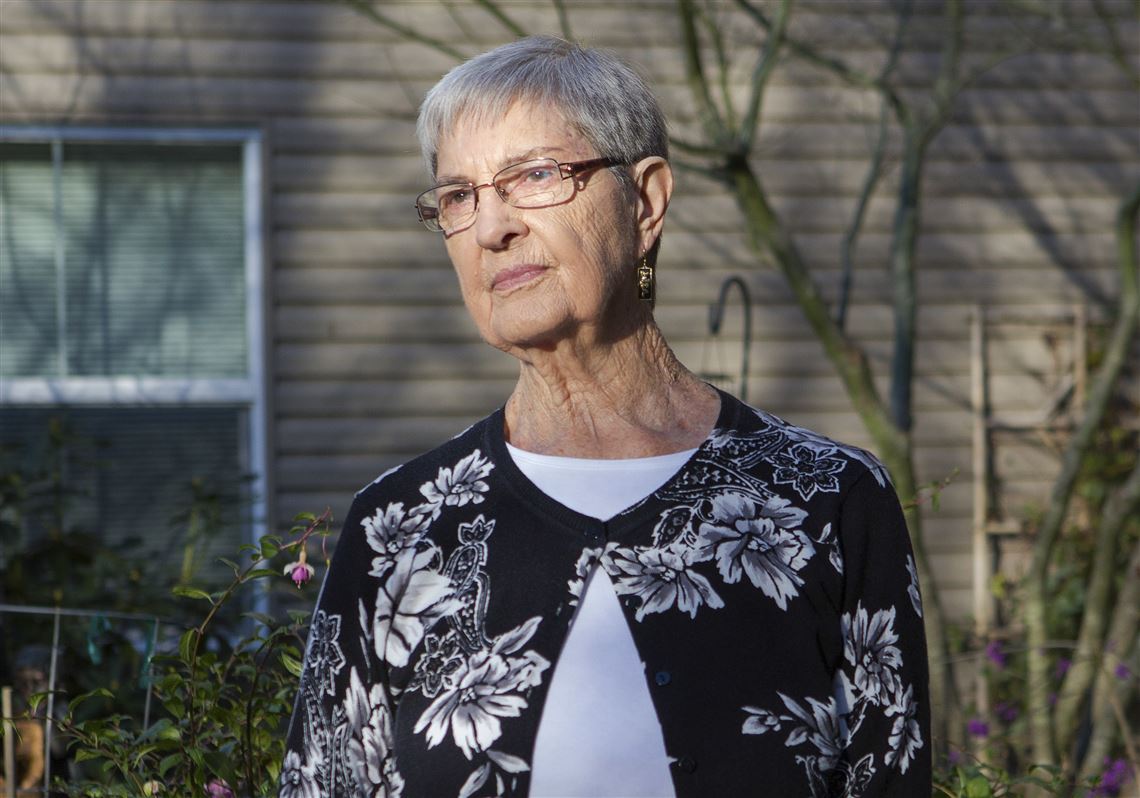Amy A. Lecoq was a stay-at-home mother raising her young son and mourning the death of her mother. But when her grandmother reluctantly admitted five years ago that she had been swindled out of her life savings, Ms. Lecoq sprang into action.
She shed her home-centered life, first to push prosecutors to investigate and bring charges, and then, earlier this year, to become an activist, traveling around her home state of Washington to lecture and testify about the financial exploitation of older Americans. She has also become a lobbyist, exhorting state lawmakers to pass legislation that would toughen penalties for people who take financial advantage of vulnerable older people like her grandmother.
“When I tell our story, so many people tell me that, ‘Oh, that happened to my grandmother, my aunt or some other family member,'” Ms. Lecoq, 41, said in a telephone interview from her home in Camano Island, Wash. “But then they say they didn’t know it was a crime, or they didn’t know it could be reported or punished.”
Her own grandmother, Mariana Cooper, 87, whose financial exploitation was recounted in a 2015 New York Times article, was swindled by Janet Bauml, who had insinuated herself into her life and whom she had come to trust. Over time, Ms. Cooper, a widow living by herself, gave more than $217,000 to Ms. Bauml, expecting to be paid back. When she sheepishly admitted to her granddaughter that she had been defrauded, Ms. Lecoq spent months calling law enforcement agents and prosecutors to help make a case for serious theft.
In late 2015, Ms. Bauml was sentenced to 3½ years in prison. After that, Ms. Lecoq said, she personally felt a calling to raise public awareness of such crimes.
“There needs to be a crime called, ‘theft from a vulnerable adult,’ so everyone knows what it is,” said Ms. Lecoq, who also works part time for a Head Start program.
Several states have laws like this on the books, but they vary widely. According to the National Conference of State Legislatures, which tracks such laws, this type of financial abuse is an active topic in state capitals. Last year, 33 states, as well as the District of Columbia and Puerto Rico, considered measures against the illegal or improper use of seniors’ money, property or assets, in addition to fraud or identity theft targeting the older people.
Some states have shored up their existing laws. Last year, Idaho revised its definition of neglect of vulnerable adults to include exploitation. Illinois extended the statute of limitations to seven years from three for prosecuting a person accused of taking financial advantage of an older person or a person with disabilities.
Also, last year, Alabama passed the Protection of Vulnerable Adults from Financial Exploitation Act, to add a layer of protection to existing laws by requiring brokers and investment advisers who believe a vulnerable adult is being exploited to notify the Human Resources Department and the Alabama Securities Commission.
The National Conference of State Legislatures keeps a scorecard of such laws, and, as it turns out, Washington is among about a dozen states that do not define financial exploitation of older people as a specific crime. Absent such a provision, it is more difficult, prosecutors say, to cobble together the pieces of evidence required to convict a wrongdoer, such as a financial audit or competency evaluation.
As the number of older, wealthier people grows, so does the number of people eager to prey on them. Occasionally, awareness of such misconduct is heightened by a notorious case like that of Brooke Astor, the New York heiress and socialite whose son was convicted of grand theft in 2009 in connection with her large fortune.
But financial exploitation routinely is overlooked and unreported, prosecutors say, because — unlike child abuse — there are no formal government-run systems for complaints and intervention.
“There is a sense that this is a family matter, and we shouldn’t intrude,” said Edwin L. Walker, a deputy assistant in the federal Administration on Aging, of the low national priority such misdeeds often receive. “But we’re talking about a crime.”
Under the 2010 Elder Justice Act, the federal government is working to boost awareness of financial abuse and other crimes against older individuals, and to encourage more people to report and take legal action against the misuse of older people’s money.
Sen. Susan Collins, R-Maine, has introduced legislation aimed at improving the reporting of fraud and teaching seniors to recognize the signs of exploitation. Ms. Collins, who heads the Senate Special Committee on Aging, called financial fraud against older Americans “a growing epidemic that costs seniors an estimated $2.9 billion annually.”
In recent years, the Justice Department has trained prosecutors to handle cases of abuse of older people and offered online training to law enforcement officials nationwide. Since most older people still visit banks, the Consumer Financial Protection Bureau has compiled a list of tips for bank tellers on how to identify and thwart suspicious financial transactions.
Still, it can be an uphill climb to get legislators to declare such financial exploitation a serious crime. Washington state lawmakers had been trying since 2015 to strengthen legal protections, but their efforts had failed.
Two months ago, Ms. Lecoq kicked off her advocacy campaign at Washington’s state Capitol in Olympia, recounting what had happened to her grandmother. Working with the AARP’s state chapter, she helped distribute 8,000 citizen petitions to legislators.
“The person who committed these crimes stole my grandma’s financial security for the remaining years of her life,” Ms. Lecoq told a crowded town hall in March in Kirkland, Wash., a Seattle suburb. “But she took more than money. She stole part of my grandma’s person, the part that was trusting, confident, healthy, independent and proud of herself.”
Because Ms. Cooper also lost her home as a result of the fraud, Ms. Lecoq said that she and her siblings had to sell the “accumulated memories of my grandma’s lifetime to fit her into a tiny apartment.”
Washington and other states without a specific financial exploitation crime on the books typically treat such swindles as ordinary theft — similar to grabbing someone’s purse on the street — and penalties are less severe. For example, the nine-felony count conviction of the woman who stole Ms. Cooper’s money drew a 43-month jail term, longer than the routine sentence because of the large amount of money stolen, but far less than the maximum sentence of 89 months the legislation that Ms. Lecoq is backing would stipulate.
Stiffer penalties are necessary to combat a growing drain on the savings of people 60 and over, according to the National Center for Elder Abuse, a federal clearinghouse. In 2015, in Washington state alone, there were nearly 8,000 complaints to adult protective services about financial exploitation, a more than 70 percent increase over 2010. And such crimes are likely to climb simply because the retiree population is growing.
Rep. Roger Goodman, the Democratic state legislator in Washington who sponsored the legislation Ms. Lecoq is championing, also has pushed to increase penalties for neglect of the seniors, and to make it easier to bring charges and secure convictions for both neglect and financial abuse, which often go hand-in-hand.
“This legislation creates a uniform way of dealing with crimes that are currently being treated inconsistently,” Mr. Goodman said in an interview.
On April 11, the bill was passed by a unanimous vote. Mr. Goodman said he hopes the measure will result in giving “victims the justice they deserve, and making sure their abusers are held accountable for their crimes.”
First Published: April 17, 2017, 3:52 p.m.















